Graham Reid | | 26 min read
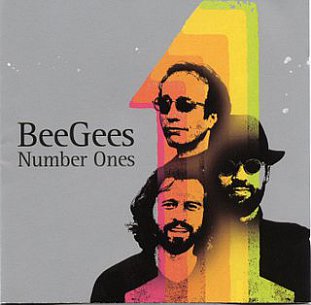
South Beach in Miami where tanned, bodies beautiful in stamp-sized bikinis parade the boardwalk, the sky is permablue and as you lie in the warm ocean watching the sun set over pastel Art Deco buildings you can hear the distant sound of Cuban music wafting from a seaside bar in the humid night air.
Miami, USA. A great place for a holiday - and not bad if you have to work here either.
And just off Alton Road which skirts the western shore, is Middle Ear Studios, the improbably hi-tech workplace of the Bee Gees which they bought with their winnings off Saturday Night Fever and christened with the Barbra Streisand album Guilty in 1980.
It's now late afternoon on a typically warm Miami day but the Bee Gees - twins Maurice and Robin, and Barry - are sequestered inside Middle Ear working on their lucrative hobby again, a new album scheduled for February 2000.
Almost 10 years ago in Melbourne I met up with the Bee Gees for the first time, and they were much the same then: personable, enjoyed laughing at their own history and possessing a wickedly self-deprecating sense of humour -- probably a necessary survival technique after a decade of derision following disco.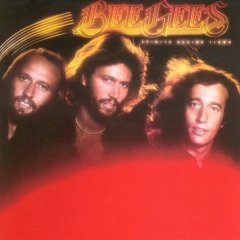 Back then, despite astonishingly good albums such as Spirits Having Flown (which sold a paltry 20 million copies), writing and producing Streisand's Grammy-garnering Guilty, penning Islands in the Stream for Kenny Rogers and Dolly Parton (the biggest selling single in RCA history, and that in a record company which has Elvis) and much more besides, they were still living in the shadow of Saturday Night Fever and smarting from the backlash it's success brought.
Back then, despite astonishingly good albums such as Spirits Having Flown (which sold a paltry 20 million copies), writing and producing Streisand's Grammy-garnering Guilty, penning Islands in the Stream for Kenny Rogers and Dolly Parton (the biggest selling single in RCA history, and that in a record company which has Elvis) and much more besides, they were still living in the shadow of Saturday Night Fever and smarting from the backlash it's success brought.
After their first flush of Beatles-influenced pop in the 60s, black music - progressive r'n'b - has long been the Bee Gee's inspiration. They've always denied they were into disco ("that was Donna Summer," said Maurice sharply back then) and their thing was New York urban dance music.
Curiously however, this past five years we've witnessed black artists borrowing liberally from white acts: Puff Daddy liberated the chorus from the Police's I'll Be Watching You for I'll Be Missing You and the Bee Gees own Islands in the Stream which they wrote for Dolly Parton and Kenny Rogers has been reinvented as Ghetto Superstar by Pras Michel of the Fugees.
The Bee Gees -- despite live shows which recount their past through hit after hit -- are contemporary artists. 
That said, the past looms large: 20th anniversary of Saturday Night Fever saw sales of the biggest selling soundtrack of all time rocket away again, the Bee Gees name was everywhere with the Grease revival (even though the sole connection was through Barry's penning of the title track) and three telefilms -- the biographical Keppel Road and concerts One Night Only and unplugged Story Tellers -- put the group back into living rooms across the western world.
In New Zealand their One Night Only was the biggest selling album of 1998.
Bee Gees statistics are daunting: they are in the top five of most successful recording artists of all time alongside the Beatles, McCartney, Elvis and Michael Jackson, have sold over 110 million albums, have had number one selling singles in the British charts in every decade since the 60s ...
And they were behind six top five singles last year: their own Alone, Stayin Alive covered by the Fugees, Ghetto Superstar, More than A Woman by 911, Tragedy by Steps and they wrote and sang on Celine Dion's Immortality.
A partial list of people who have covered Bee Gees songs makes jaw-dropping reading: Janis Joplin, Al Green, Diana Ross, Celine Dion, Elvis Presley, George Michael, Roberta Flack, Backstreet Boys, Luther Vandross, Rod Stewart ...
As far back as the early 60 Barry was giving his songs to others: he rechristened the band of his cousin Trevor Gordon The Marbles and wrote Only One Woman for them, and renamed Cheryl Gray as Samantha Sang and handed her the hit Love of a Woman.
All up there have been over 500 covers of Bee Gees songs.
And the thread which binds them together? Black music which the Bee Gees have taken into the mainstream.
Mainstream is the dirty word in pop'n'rock culture. If you believe the critical assessment of the past four decades and you'd think it was all the Velvet Underground, the year punk broke and The Grunge Wars. While no one would deny the influence of the Velvet Underground or the Sex Pistols, it seems unfair to expunge the mainstream from the history books entirely. It's what people, not critics, were listening to. 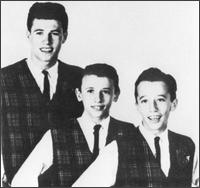
And people have always listened to the Bee Gees.
Their debut public performance was at the Gaumont Theatre in Manchester in 1955.
From the Isle of Man to Manchester, to pre-teen and pubescent fame in Australia, to London in 67 and the New York Mining Disaster, to Fever and onwards ...
The Bee Gees have a story to tell, and they seem happy and secure enough to chat, despite not needing to. Their concerts sell with little effort, their albums too - but ask for an interview and you get all three.
First up to the plate is Maurice . . .
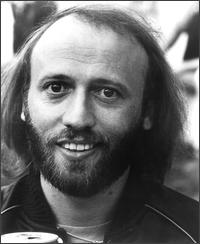
I understand how busy you are and that you don't actually have to do this, so I'd like to thank you for making the time. And you are in the studio at the moment?
Oh, not all, good to talk to you. And yeah we're in the studio now and we've just started the new album, putting down the tracks and working out some ideas and it's coming along real good. We've got three down and we're going to continue when we come back from Australia and New Zealand to do the album from then on.
Which studio are you in?
It's our own studio, Middle Ear in South Beach Miami.
I've driven past the very place.
Oh, if you know the area and you're driving past ...
Right, I'll just drop in.
It's the area they've now done up and called South Beach, we christened it with the Barbra Streisand album Guilty in 1980.
And so you are now still writing for this new album, the one to come out in February 2000?
Yeah, we've got 11 ideas now we're working on and we're starting to cut the backtracks now.
I know you have lived in separate places do you guys phone each other like I would phone someone and say, 'Do you fancy getting together for a beer?' Do you call and say, 'You fancy getting together and making another album?'
You hit the nail right on the head, that's exactly what we do. We're very fortunate, the beauty of Fever was to give us the assets to get our own studio so we could create when ever we wanted to and we actually went totally digital in '87 and we've just ordered the new console which will be here while we're in Australia. It'll be the hottest studio in Florida, amazing. We've kept up with everything that's going on and its's like our toy shop. It's where we come to relax. Our work is our hobby as well.
I remember the early days in Australia when we found this guy called Ossie Byrne and he had a converted butcher's shop for a studio and it was all reel to reel, and God did we have fun. It was like our toy shop too.
And that's where Spicks and Specks was recorded. (Laughs)
What a great song! I'm serious. I remember there was a greatest hits package that came out and it didn't have Spicks and Specks on it and I thought that a very northern hemisphere view of your career.
I love that song, when it came out they wanted to put it out with just a picture of my forefinger on the piano. (Laughs) I was learning the piano at the time and I just got that note going and thought, 'Oh this is good.'
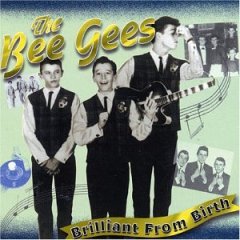
There was a Spin Records collection that came out last year, a double CD with liner notes by Glenn A Baker. I know Bruce Springsteen went to court recently to stop the release of his very early stuff, were you a bit like that with the Spin one? Or were you happy to see it out there?
Funnily enough some of the stuff was actually backtracks from shows like Sing Sing Sing which were Johnny O'Keefe shows and were done by the ATV orchestra or an orchestra. So we got hold of the tape, apparently Ossie Byrne got hold of the tape and it has songs like Somewhere and You're Nobody Until Somebody Loves You.
You know, in Australia if you asked for strings on your record it was like asking for death. In those days the industry was so young you couldn't ask for string players - so out would come the Farfisa organ. God I used to love that thing!
Anyway what I was saying ... when those tapes arrived we just used to sing on them, some of those tapes weren't made for records except a bunch which came out as Rare Precious and Beautiful with butterflies on the front, and it's basically those albums which came out in the late 60s all compiled onto two CDs. I think some were lost, but they were ones we did for tv shows.
It was crazy, you'd go to Festival [studios] and do the songs then go to the Sing Sing Sing show and mime to them and you never see the songs again. And that's the stuff that's ended up on CD.
But you didn't mind at all, because they are real juvenilia?
Not really, what we loved about it was listening to all the old songs again. Robin was 12 years old and he's going [in a deep voice] 'somewhere, there's a place for us.' Jesus!
It sounds like a lot of fun but what you can hear on it is our growth from the Beatles to the Righteous Brothers to the Seekers type thing. There was a song called Follow the Wind which we wrote with the Seekers in mind. That was very folksy pop, the stuff was quite a retrospective and from my point of view I thought it was fascinating.
You said you wrote for the Seekers and I know you write for other people...
In those days they didn't know where we lived!
Could you write to order, say if Oasis came to you? I'm sure Noel Gallagher is a big fan but if he said, 'Write us a song' could you do that?
Funnily enough one of their favourite songs is off our second album, it's called Harry Braff. We know what the expression 'braff' means, don't we? So we wrote this song about a non-existent speedcar racer called Harry Fart. It was just one of the Australian expressions that you pick up and we were using so we used them in our songs. So I guess if we wrote something in that vein they'd probably have a ball with it.
When people do cover versions of your songs do you have right of refusal, if say Marilyn Manson came and said I want to do To Kill Somebody.
We'd say no. We would not have the songs desecrated in any way. Al Yankovic is going to do one but it's not a piss take. People have been sampling us for a long time now, Islands in the Stream made it to Ghetto Superstar, things like that. A lot of those things have come along but they're not done to take the piss, they are done out of respect, otherwise they wouldn't have done it if they didn't think it was good enough.
We're very fortunate to have been writers and the Backstreet Boys have got a new song we've just written for them. We wrote this song called Sacred Trust and it's on their new album.
It's right up their alley, we just imagined them doing it when we wrote it for them, just like we did when we wrote for Barbra, Kenny and Dolly for Islands in the Stream, we just imagined their voices because the voice is just another instrument.
We wanted to give them something where they'd never sold records before, get them out of their kind of field and to a wider audience. Like Barbra's Guilty album. She'd hardly ever sold albums in Europe and after Guilty came out it because the biggest selling album she'd ever had. And it broke her in Germany and Holland where she'd never normally sold.
And with Kenny and Dolly it crossed them right over to mainstream. We call that our Tie A Yellow Ribbon because everybody was bloody well performing it.
When I look at the history of pop, say a BBC series, it always seems to me there's whole other unwritten history. It wasn't all Lou Reed and the Velvet Underground, or the year that punk broke, there are a whole bunch of other people, like yourselves, who never make it in, yet you are the ones who have created pop music for 30 years if we consider the definition to mean music which is popular.
You do see some people's different perceptions like in The History of Rock'n'Roll and how people perceive things. For instance the one particular group, and I don't mean this in a particularly bad way, but The Doors for instance have been made into some kind of huge cult thing and they were one of the worst bands I've ever heard. They were only known in America but they say they were a worldwide thing because the guy died young unfortunately because he had a very bad drug problem, as most bands did in those days.
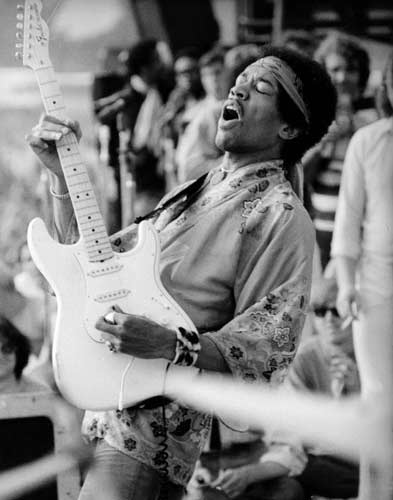
But to put them on a pedestal because they were silly enough to do what they did - and not for the music? The most talented man in the band was the keyboard player, he wrote most of them and when poor old Jim couldn't make it to the stage, he took over. I saw them live and wasn't impressed at all, the same night I saw Jimi Hendrix and I was IMPRESSED. That was in the park in New York, Jimi just blew me away but I was terribly disappointed in the Doors, mind you he wasn't quite with us ...
Do you get miffed that you aren't into the written history of pop?
I must admit in the last three years though there has been unbelievable respect.
Four lifetime achievement awards, the Rock'n'Roll Hall of Fame ... all that in three months? We had no idea, you couldn't have planned it. And the respect we've had! Now all of a sudden people are recognising what you've just said, maybe in future versions of the history of rock'n'roll?
All I know is the people I've spoken to who've had a Fever in their career, like Thriller for Michael [Jackson] and Rumours for Fleetwood Mac and the Eagles for Hotel California, the people who've had these phenomenal albums which have stuck out as a moment in time, are not mentioned either, except for Michael obviously.
But it's people perception of who do the books, if they hate the disco period, they hate us. But we were doing records long before the disco period ...
And long after it would seem.
(Laughs) Exactly! But the actual respect is worth a lot more to us today whether they mention us or not, because you really can't get into that negativity of people. We never even think negatively now, life's too short for all that rubbish and we count our blessings.
People say success is its own reward but you live in the world where your success is measured by record sales and if something doesn't sell and you would want it to - as I'm sure you do - do you then consider that a failure or do you simply think, 'Well, we didn't connect with an audience this time'?
I don't know any artists whose had the kind of success where everything they've done has been wonderful and tremendous. We didn't expect Fever to do what it was going to do, nobody did. Other record companies were pressing the damned thing to catch up with sales, that's how incredible it was. But nobody could have predicted that phenomenon, it was a low budget film and we were doing our new album anyway, Robert [Stigwood, the Bee Gees manager] had just nicked half of it and used it on the movie.
I will wind up and thank you for your time, but you say you have 13 working versions of songs? You have a fairly clear idea when you go in?
We'll spend a writing afternoon when we'll get together, or an evening, and if we're all in great moods it's wonderful, if one of us isn't, we don't write. We all become sort of one, if the song is done in the tempo we like that's the way it stays. The demo basically becomes the record, to use an old coining phrase!
But that's often true?
Sure, because the demo is the first thing you hear and the first thing you do is the best one. When we demo the written song we add to that, the colours or whatever it needs, that's what ends up as the finished CD.
Maurice, I should let you go to presumably write another hit.
Alright then. I've got this thing about the Titanic ... ah but it'll never sell.(Laughs)
Thank you for your time
Looking forward to seeing when we come down. I'll just put you on hold - or shall I just put the phone down?
Just put it down and I'll eavesdrop on all the bit in between.
Yeah, you don't want to listen to the radio, it's all just rubbish.
Needless to say, and he would know this, the music piped into the phones around Middle Ear is Bee Gees music.
Then Robin picks up the phone.
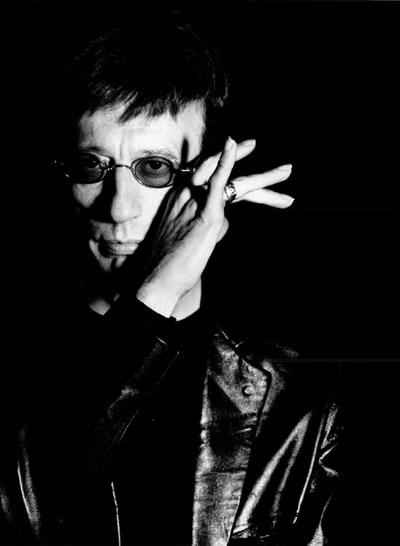
Thanks for your time, I know you are actually at work at the moment and I take it this is the album that I already see on the schedules as will be out in February 2000. That's what we call forward planning and I do need to ask you this, writing hits seems second nature to you but have you ever collectively hit a writers block?
I don't subconsciously think that, there are some songs that will work and some that won't. There will always be something that will work and something that won't and you are always writing something else so it doesn't really matter.
I assume the internal dynamic of three brothers also helps inasmuch as if somebody's not onto an idea then the others intuitively know that.
Yeah, there's a kind of dynamic where you can come up with an idea at some point. We don't always rely on one person to come up an idea, everyone's got different ideas.
Who do you listen to at the moment Robin, for your own personal pleasure?
A lot of r'n'b, black music. Black groups are the most innovative of the grooves and that's where we draw our influences. We listen to Wyclef and Pras Michael and all that because they come up with the excellent grooves. And Coolio - that's Coolio not Julio - it's important to get that C right. (Laughs)
So there are a lot of interesting grooves in the black arena which are very influential.
And of course the interesting thing is lot of those people have picked up on Bee Gees songs lately.
Yeah, that's an interesting fact, the urban groups being very influenced by us.
When you talk to those people who cover your songs - and I'm talking specifically about urban black artists whom we might expect to be the least influenced by you - what is it they say? Do they say, 'My mum used to play that round the house?'
No, they're influenced right now, they love it right now. This is what people don't understand, this music is being played in clubs all the time, it's not something that was being played then, it's being played now.
You can go to any club in the world and hear our music, so people are getting this music now so they are being influenced now. Whereas Beatle music isn't being played at all except on old radio stations, but people can't go into clubs at an urban level and hear it but you can with our music because ours is always being played.
Is that because you have the groove, and you've always listened to black music from the beginning?
That's right, we've always been influenced by r'n'b, black music, progressive r'n'b. A lot of the white groups which were around us in the early 70s were getting into heavy metal whereas we were getting into r'n'b black music. And that's more perennial. Of course there's an audience for heavy metal and always will be, but there's more mainstream appeal for r'n'b black influenced music.
The other thing is heavy metal works with a limited palate and a heavy metal song from 10 years ago is much like a heavy metal song today, whereas black music is always progressing.
And has a wider appeal, to a wider age group as well.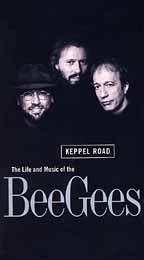
One of the things I've always thought about the Bee Gees is that just by being accessible people and with videos like Keppel Road and the acoustic things, is that they de-mythologises the whole songwriting process for people and they can see what you do and say, 'Oh, that's how a song works.' People see there's no great mystery and the songs just stand up bare.
It's a bit more complex than that. As much as Keppel Road demonstrated how a song is written, it's not always the one formula. It doesn't always display all the sides of writing so what we tried to do was give people a taste of it, but it is a bit more complex than that.
Has the song writing process changed for you over the years?
It's like writing a book, it's still about ideas and of course the writing is really at a grass roots level. We very rarely write with a lot of instruments.You write basically with your mind, your imagination and a pocket recorder, because ideas can come at any time and anywhere. So the main ideas come before you get into the studio.
And the studio is to buff it up.
Sure.
The songs you've written for this new album, will it be , 'I hope you like our new direction'? It's not space rock is it?
(Laughs) Basically the direction is into more progressive r'n'b and be influenced again by the grooves coming out of the US and the UK right now.
Do you listen widely to other people.
Umm, yes but not to always known artists but the black artists and the innovative one. Not because we feel we should do for our craft but because we like them, it's the music we like to listen to.
Because you are a group which has always progressed - and the sheer volume of stuff you've put out would attest to that - how do you feel about the fact when you get up on stage you have to present the hits package and so much other stuff, especially new songs which you are attached to, you don't get the opportunity to play live.
Sometimes it's hard when you've got a two hour show to get everything in!
In your case yes!
Yes, some things are going to be left out. We don't worry too much about that.
There are occasions where we'll take a song out and put another in for the sake of change. If you two shows in a row you can do that, but by and large we don't worry too much about that.
I'm thinking though say you have a new album out which might have four or five songs you would want to present, but your history looms so large all those other hits ...
You're always going to have that, a lot of artists who have histories have that problem. Elton John for example. I was at an Elton concert, I'm a friend of his, and he had that problem. He had a new album he wanted to sell so he goes out and plays a first half of his act with new songs and everybody wanted to hear Your Song! The artist can get angry, you know. (Laugh)
The trouble today is you have an album and you'll have a major hit off it - but you may not have another hit off it because that first one will spearhead the sales of the album. So you can really sing a major hit from your album and leave it at that.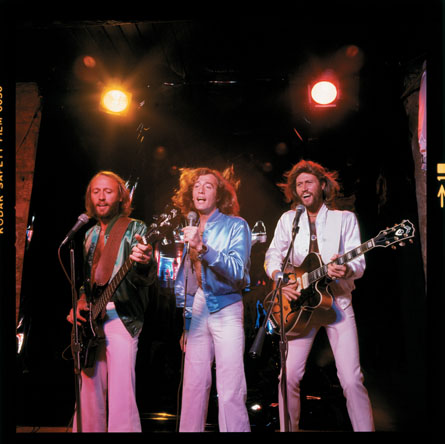
Do you follow that business end when you've got an album out. I know you'll get reports every week and people tell you how many units you've shifted and so on, but do you really take a great deal of interest in that end?
Not so much sales, I like chart positions and to know we can consolidate chart positions in markets which are special to us, we're not so much on how much money we are making or how many we've shipped.
It's important to know how many we've shipped in terms of knowing what the demand is to that degree and how high you are going to be, in that context it's important.
I put this to Maurice as well, success is its own reward but in the idiom you work in
You mean the idiots we work with ... (Laughs)
But what happens if something doesn't sell to your expectation?
It happens with everyone, there will always be ones which do better than others. Nothing's written in blood and that's all there is to it.
And you can't anticipate what's going to work even after all this time?
You can have a good idea and feeling.
What about unrealised ambitions? It's astonishing when the statistics are stacked up, but things you would like to have achieved or would look forward to achieving?
I don't know. There aren't any I can think of right now other than to keep on going and see what the future brings, see what looms up. Fingers crossed.
And now Barry comes to the phone.
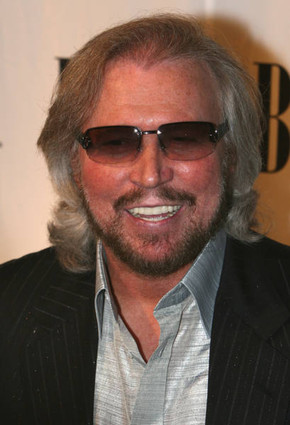
Hello Barry, I put one thing to Robin and I wouldn't mind running it past you: the Bee Gees are one of those acts which can get up on a stage with just a guitar and sing those songs, a lot of acts can't do that because they don't have songs as such. I wonder if you attribute a large measure of your success to the fact you demythologise the whole process for people because they can see all the rest is just production, but at base it's a song.
Yeah, I think that's true. You see examples of that all the time anyway, it's the song that's the hit not the artist that's singing the song. We've always believed in that and we would sit at home with acoustic guitars and write. If we write in that environment and the song stands up, then when you put music to it to make the record it become more than the song, but the song is all important.
When you walk into the studio do each of you have bits or do you fully realised songs.
We have bits. You might have a vision where the song may be some lyrics and melody all at once, that may come as a vision or a picture in your mind, you take that to the studio and suggest it and if everybody gets off on that concept or vision we'll start working it and finding out how to shape it into a song.
What songwriters do you admire, and I'm talking about songwriters as opposed to performers of songs.
I still love Rogers and Hammerstein, Burt Bacharach and Hal David, the great popular songwriters, I love Noel Coward, people I can learn from because I don't think you can stop learning.
It always seemed to me the Bee Gees wrote songs which became hits as opposed to hits. With all due respect to her I've always felt Dianne Warren seemed to be able to hear an idea and write a hit whereas you guys write songs which capture peoples' imaginations. Can you sit down and write A Hit and make that the project?
If you try just writing a hit you lose that 'it', that element that puts you in touch with people. For us a song is also subjective, it's down to each person who listens to it what they think, or how they imagine it involves their life.
So we try to write our songs in an abstract form. If we were looking for a hit I don't think we would have one. We have to work for some emotional connection that everyone can relate to in some sort of emotional way.
You've certainly written yourself into a lot of people's autobiographies.
Yeah, but it's not on purpose. We say, Jesus, look at how that turned out! Look at Immortality, the song on the Celine [Dion] album which may never be a single no matter what. But someday somebody might have a single with it, but I constantly have people say to me that's their favourite song on the album - so the song lives.
You have had so many different cover versions, do you collect all of them? A big shelf in the lounge?
(Laughs) We very rarely listen, but we do collect. We have examples of anyone who covers our songs but we don't spend too much time listening because we don't want those things to influence what we are doing at the present. It's difficult to listen to your own things like that.
Do you collect Bee Gees memorabilia, is there someone in the band who is the archivist?
I'm a bit of an archivist but I collect things from people that we work with, not so much Bee Gee memorabilia, but people we're fans of. I have Barbra Streisand's straw boater which she wore in Funny Girl and I have [producer] Arif Mardin's baton, just things like that. I have the first demos we made when we were kids in Brisbane, the ones we made with Bill Gates. I have that acetate at home, of course we don't have acetates at all these days.(Laughs) 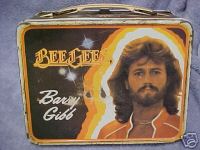
I have a Bee Gees lunch box. Not too many people want them either. (Laughs)
There was an album which came out last year on the Spin label and I'm mindful that for artists it's necessary to protect the image. You were fine with that, because it's very old stuff?
We weren't fine with it, not because its very old stuff but because nobody consulted us and the record company in question never actually approached us at the proper level and went through the songs with and asked us what we might not want on that album.
So there was a complete lack of communication - and then the same people claimed in the newspapers they'd been working with us all along and it's just not true. So in that respect it was just a lack of consideration because there were some things on that album we may not have wanted out. But in the long run, what does it matter?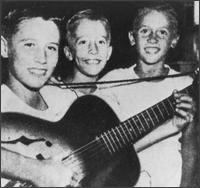
Yeah, because the people buying it are fans anyway - but there's a track on there called Monday's Rain which is a real cracker, it sounds like the Walker Brothers meets Mink DeVille.
Shows you what our influences were, we were trying to do everybody! Robin does Somewhere and I think that is a great track.
I'm given to understand there's a miniseries coming and one of the things which has always impressed me is that you keep your private life well away and we should all respect that, but a mini series almost invites a look inside?
What it is, is the journey from our childhood on the Isle of Man then Manchester, to Australia, coming back to England in 67 to try and make it ...
When people say miniseries that means actors portraying you.
It's actors! I'm looking forward to watching that one, mate. (Laughs)
You've seen the script?
No, we've just met with the people who are doing the production and gathering the material to write the script, but within a couple of weeks we'll have a 30 page synopsis of what we are calling the map will look like. How deeply they go into our personal lives we'll have a lot to say about.
Who do you want to play you?
Leonardo, of course.
Private passions outside of music, any of you closet golfers?
Tennis for me, I used to be an A player, like when people shout 'eh, get off the court.' I used to be quite good and do Pro-Am tournaments but I got too arthritic so I cut that out. I'm a watcher now, I like to watch. (Laughs)
Unrealised ambitions? In many ways you've just about done it all, but are there things you would like to do or even people you'd like to write for?
Lots of people, but collaborate would be more the word. I'd like to write with Paul McCartney, people like Phil Collins or Elton John, people I admire and you might not get the chance to work with, you may only live once.
But can you be proactive in that? I mean, you met these people in airport lounges or at dinner parties. It wouldn't be hard to make happen?
I could, but the other side of my life is family and that's the most important thing, so if I've got to spend time away from them it better be worth while and these days I don't do that. I don't really go away unless they are with me. My life has changed a lot, when you have a lot of children they become the priority.
The tour you are coming on, the family will be coming on?
Oh yeah, my kids will be with me.
I shouldn't hold you up and you have been very generous with your time.
No problem mate, we're looking forward to it and thank you. We're going to have a wonderful time, I promise you that.
This interview with Maurice (1949-2003), Robin and Barry Gibb was conducted for the New Zealand Herald in March 1999 in advance of their New Zealand concert. A review of the concert follows. www.nzherald.co.nz
*****
The Bee Gees in concert 2000, review 
Western Springs Stadium, Auckland. New Zealand
In the end, after all the statistics about albums sold and so on, what did it come down to?
Well, delays on the motorway starting around 4 pm on Saturday when many of the capacity audience arrived, about four hours early.
Yes, the Bee Gees concert was always more than a show, it was a much anticipated Event. And the three small figures (out front of a discreet, mostly invisible band) didn't disappoint.
In a well paced, intelligently-programmed 100 minutes they delivered all the hits and more - and along the way, without pretension or artifice, reminded us that they are one of the great songwriting teams of the century.
The Bee Gees were and still are pop musicians - as in "popular" - and while Night Fever and Stayin' Alive (each pulling the crowd to its feet) stand as emblems of a period, their best songs are timeless pop.
Entering after a video montage of what more precious egos might consider embarrassing home movies (See Robin's buck teeth! Be very afraid of the Big Hair Years!) they launched into You Should Be Dancing, which they reprised in a good-natured encore in Auckland Blues' jerseys and with video footage from a Zucker brothers movie parodying Saturday Night Fever.
Between those self-deprecating bookends they touched a lot of places.
"We'd like to go back 30 years," laughed Barry after that crowd-pleasing opener, "as we are so capable of doing."
And there followed the quavering Massachusetts, To Love Somebody, Words (Barry in superb solo form), the minimalism of Spicks and Specks and Lonely Days, Robin's agonised Celtic style on the lovely national anthem of their birthplace the Isle of Man, an aching I Started A Joke, and on up through the Fever years. Hit after memorable hit.
And there was a moving tribute to brother Andy with Don't Throw It All Away, complete with more home movies and Andy singing along (as did Frankie Valli in the later Grease). It ended on a curious image, however: a drawing of Andy looking less like a late brother Gibb than an early Lady Di.
But it wasn't all a magical history tour.
Early on Alone - an astutely constructed song which keeps its hook until about halfway through - and Closer Than Close were object lessons in songcraft.
And all this came with a human face.
Barry, who suffers from arthritis, had been noticeably slow and cautious in his movements at this week's press conference. And for those close enough at the show there were the occasional flickers of pain - but none allowed to interrupt the Event.
His was not only a fine performance (his vocals faltered just once, at the opening of Tragedy), it was courageous as well.
There was also gentle clowning: as Barry and Robin alternated at a single microphone, Maurice mugged along. That the drummer found this hilarious suggested it was unrehearsed - but may have been missed by many because little was caught for the video screens.
Yes, it was fun and probably unfashionable, but it was also timeless pop at its most affecting best.
It was an Event - and 60,000 people will tell you why.




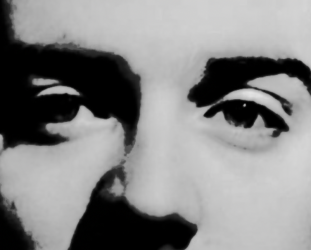
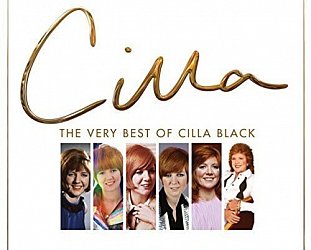
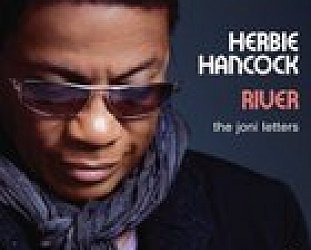
post a comment